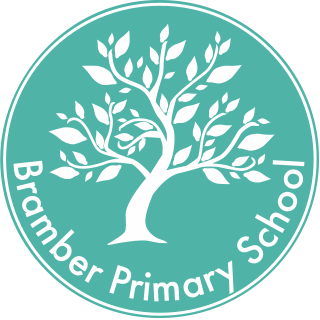Relationship and Health Education
RHE Curriculum at Bramber
IntentAt Bramber Primary School, we place a high value on Relationship and Health Education (RHE). This subject equips our pupils with essential knowledge, skills, and attributes necessary for maintaining their relationships, health and safety, emotional and physical wellbeing. Our RHE curriculum is tailored to meet the unique needs of our pupils and our local community, using school, local and national data to develop our provision. Our curriculum draws from the West Sussex Education for Safeguarding (E4S) documentation. It focuses on fostering resilience, self-esteem, risk management, teamwork, and critical thinking, organised around four core themes: Relationships Education, Digital and Media Literacy, Emotional Health and Wellbeing, and Physical Health and Wellbeing. We refer to our RHE curriculum as E4S, a name embraced by our pupils. We believe that RHE plays a crucial role in helping pupils navigate the significant opportunities, challenges, and responsibilities they will encounter as they grow and transition into adulthood. |
By teaching our pupils how to stay safe and healthy, while promoting self-esteem, resilience, and empathy, our RHE curriculum aims to remove barriers to learning, elevate aspirations, and enhance the life chances of all our pupils
Implementation
|
Our bespoke E4S curriculum has been carefully planned to meet the statutory RSHE requirements that sits within a wider framework of PSHE. The curriculum has been designed with the current cohorts of children in mind and is adapted and changed to further meet their needs as matters arise. The RHSE policy was consulted on by all stakeholders and we have adopted clear guidance on how we deliver our curriculum, with particular clarity on how the Relationships, sex education cornerstone of our curriculum is delivered. The statutory RSHE curriculum is taught through our E4S curriculum in units of learning that are age and stage appropriate. Where possible, links are made with other areas of the curriculum to provide context and purpose. Whole school planning has been developed by the RSHE lead and there are medium term plans for every aspect of the curriculum that support the delivery of the E4S curriculum. Opportunities to assess staff subject knowledge and offer CPD are available and monitored by the RHSE lead. At Bramber, all year groups have a regular time allocated to teaching E4S, which equates to approximately 30 minutes to 45 minutes weekly. |
||
|
From Year 1, children have a dedicated learning book for E4S, which moves through school with them to demonstrate how their knowledge and skills have developed across their time with us. Further to this E4S curriculum, there are opportunities for personal development in all areas of the curriculum and consideration to SMSC within all subject areas.
Assessment in RSHE should assess the learning not the personal development of pupils and therefore, to enable this to happen, assessment has to be an integral part of the teaching and learning process and focus on clear learning outcomes. In RSHE, just as in other subject areas we compare progress against a starting point, or measure progress with reference to an external standard. However, the most important thing we consider is what are the lived experiences of pupils and how does the ‘learning’ help them to know more and remember more over their time at your setting. In order to help pupils to be successful independent lifelong learners, we need to facilitate meaningful opportunities for pupils to reflect on and identify:
|
||
Impact
Assessment Methods
This comprehensive approach ensures that our curriculum remains effective and responsive to the needs of our pupils |
